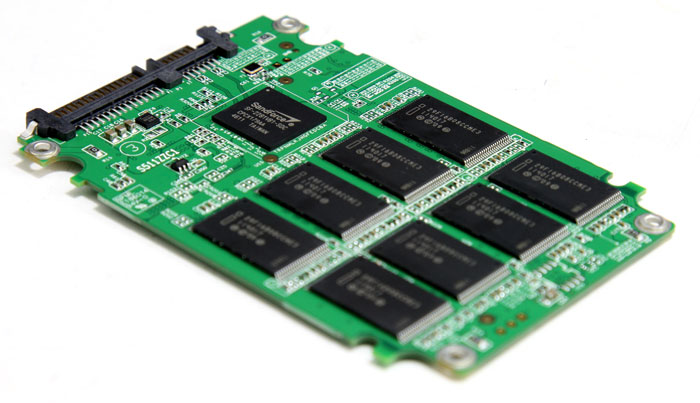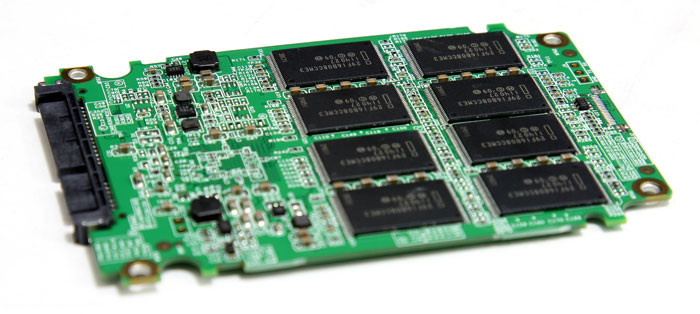Product showcase

And here's the PCB. This 6Gbps storage unit makes use of Intel 25nm MLC NAND. And there it is, on the left the SandForce 2281 controller can be seen.

At total of 16 NAND flash memory ICs (8 on each side) can be spotted on the PCB. The NAND FLASH partition are assigned to the SandForce 2281 controller.
SandForce, opposed to other controllers, enforces a trick as they can write to the FLASH memory less then the competition needs to by using real time compression. The SF controllers store a representation of your data and not the actual data itself. It does that by using a partition of the available NAND flash memory.
This is why on SandForce based drives you do not see an extra memory cache chip, which in fact saves on the bill of materials used for the SSDs, it will howevere make your available storage volume smaller, as Sandforce uses some of the NAND flash for compression.
Now we mentioned it already, but the SF-2281 series controller will support up to say roughly 500MB/s sequential read and write speeds, that's a good 62.5MB/s per one of the available eight channels. Combined the bandwidth is just exceptional for single non RAID drive.
SF2281 controllers support TRIM. Deduct a few GB per partition for real-time data compression and then you have your SSD ready.

The one thing SSD and HDD manufacturers are quite horrible at is to show you the real number of GB your drive has AFTER formatting.
With 25nm NAND flash memory based products it even gets worse as the SSD will need to reserve a chub of NAND memory for provisioning as well. Say that you purchase a 120 GB SSD drive, people expect to get 120GB and not 115 GB, you can dwell down into the "Windows uses Binary capacity measurements 1024MiB = 1GiB" discussion, but it remains somewhat shady advertising.

With 25nm NAND flash memory some more then usual NAND FLASH will be hogged up by the SSD for redundancy and compression and is over-provisioning a few additional GB.
The end result for our 256 GB SSD is 238 GB after the NTSF format. We lost almost 8% = 18 GB right there without the drive even being used for storage.
